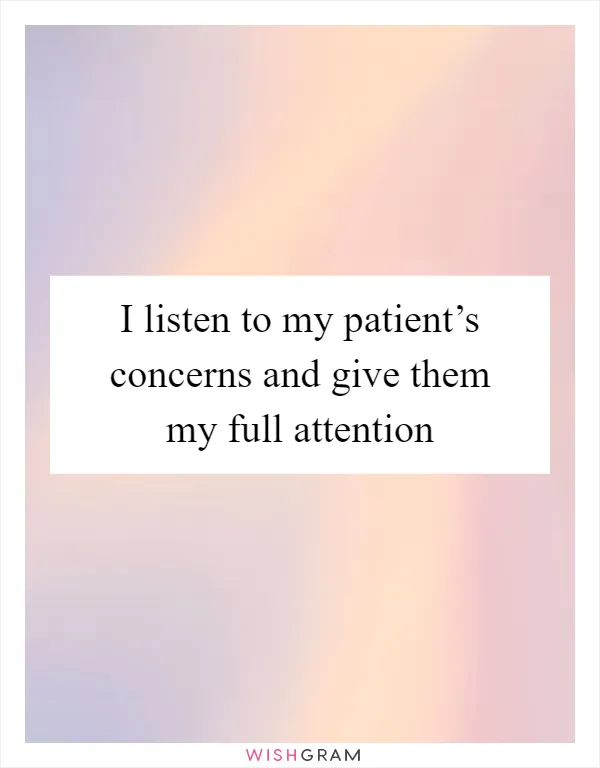I listen to my patient’s concerns and give them my full attention
As a nurse, one of the most important aspects of my job is to listen to my patients' concerns and give them my full attention. I understand that when patients come to me, they are often feeling vulnerable, scared, or in pain. It is my duty to create a safe and supportive environment where they feel comfortable expressing their worries, fears, and questions.
Listening to my patients is not just about hearing their words; it is about truly understanding their needs and emotions. I make a conscious effort to be present in the moment, to actively listen without interrupting, and to provide a non-judgmental space for them to share their thoughts. By doing so, I can gain valuable insights into their condition, concerns, and expectations, which ultimately helps me provide the best possible care.
I believe that every patient deserves to be heard and understood. Each person has a unique story, and by actively listening, I can gain a deeper understanding of their individual circumstances. This allows me to tailor my care to their specific needs, preferences, and goals. Whether it's a simple conversation about their day or a more complex discussion about their treatment options, I strive to give my patients my undivided attention.
Listening to my patients also involves being empathetic and compassionate. I recognize that their concerns may extend beyond their physical health and may include emotional, psychological, or social aspects. By actively listening, I can offer emotional support, reassurance, and guidance when needed. Sometimes, all a patient needs is someone to listen and validate their feelings, and I am committed to being that person for them.
Furthermore, I understand that effective communication is a two-way street. While I listen attentively to my patients, I also make sure to communicate clearly and effectively with them. I use simple and understandable language, avoiding medical jargon, to ensure that they fully comprehend their condition, treatment options, and any instructions they need to follow. I encourage them to ask questions and actively participate in their care, empowering them to make informed decisions.
